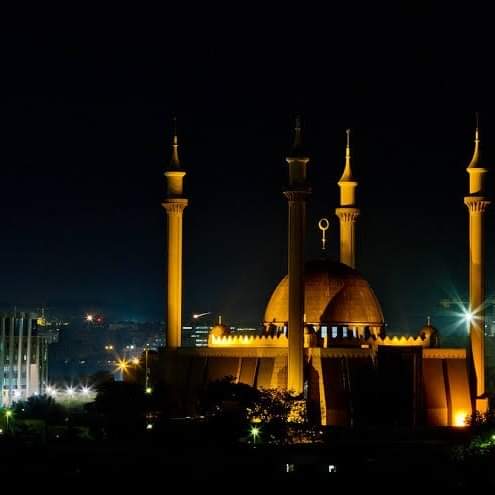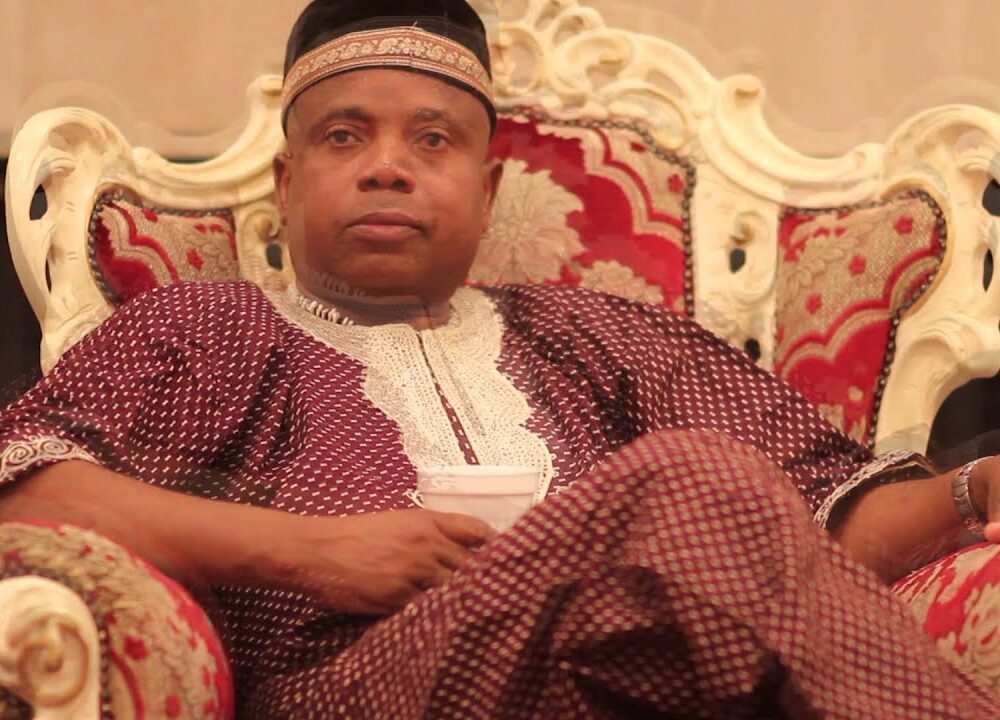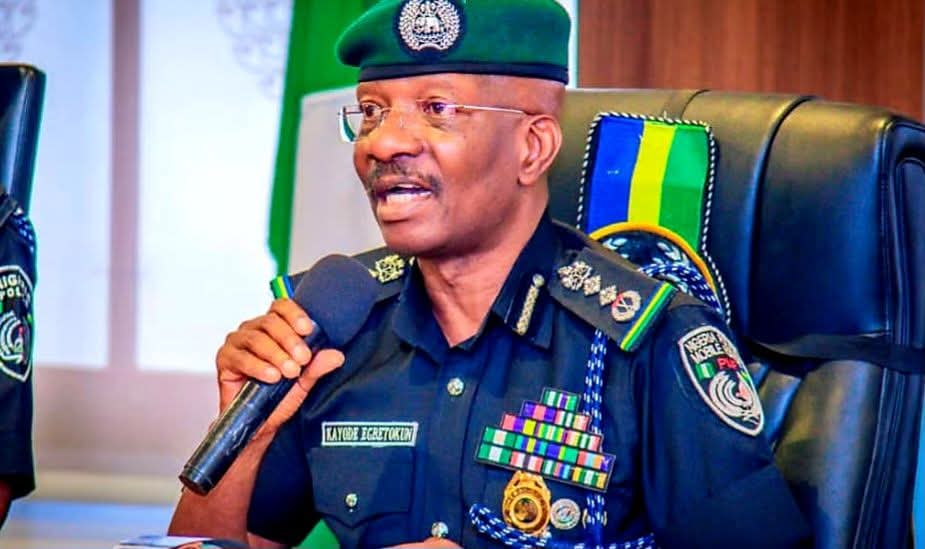Last week, I had the honor of a deep dive conversation with very respected men and women of the press, from the traditional to the digital space, citizen journalists, bloggers and more. It is an interesting cohort, and I am sure that at the end of this initiative, the impacts would be felt. Let me quickly appreciate the Search For Common Ground’s Katlong, Daniel, Temisan, Emmanuela, Fatima Madaki, the Country Director, and all the wonderful souls and the work we all do in this space.
My presentation was about the complex dynamics at the intersection of religion and human rights in Nigeria, with a focus on striking a balance between the fundamental right to freedom of religion and the broader societal interests. Using real-world examples, the session explored the challenges and opportunities inherent in navigating religious diversity while upholding human rights principles with fixation on media practitioners. From issues of religious minorities’ rights to the impact of religious beliefs on public policies, the presentation offered insights into the delicate equilibrium required for peaceful coexistence. By examining specific cases and their outcomes, I sought to give them a nuanced understanding of the intricate relationship between freedom of religion and the collective interests of Nigerian society.
I sincerely hope as takeaway they were able to understand a little of the legal framework surrounding freedom of religion in Nigeria, a comprehensive examination of the constitutional and statutory provisions, as well as their practical implications.
I danced graciously around Constitutional Provisions:
Nigeria’s Constitution, particularly Chapter IV, guarantees the right to freedom of thought, conscience, and religion.
Sections 38 and 39 specifically address freedom of religion, ensuring individuals the right to practice, change, and manifest their religion or belief.
I looked at the Limitations and Exceptions:
We collectively agreed that despite constitutional guarantees, there are limitations to freedom of religion, especially when it comes to public order, safety, morality, and the rights of others.
I encouraged them to further look up Religious Freedom Laws:
By examining specific legislation related to religious freedom, such as the Religious Discrimination (Prohibition, Prevention, etc.) Act.
Exploring how these laws are enforced and their effectiveness in protecting religious minorities.
We touched a handful of Court Decisions:
Analyzing landmark court decisions that have shaped the interpretation and application of freedom of religion.
And also looking at cases involving conflicts between religious practices and other legal provisions or societal interests.
Conversations like these can’t be complete without Government Policies:
Evaluating government policies that may impact freedom of religion, such as regulations on religious institutions, licensing, or recognition was important
Assess the extent to which these policies promote or hinder religious freedom.
It was exciting listening to perspectives for Practical Implementation:
Examining how freedom of religion is practically implemented at the grassroots level for media personnel.
Encouraging journalists to investigate instances where there may be discrepancies between legal guarantees and actual experiences of individuals and communities.
And finally looking at Challenges and Opportunities:
By identifying challenges faced by the media, the individuals or religious groups in exercising their freedom of religion.
Explore opportunities for legal reforms or advocacy to strengthen religious freedom protections with the media personnel.
It was important that we x-rayed the Sharia Law Implementation:
In some Northern states of Nigeria, the implementation of Sharia law has been a source of tension. Cases have arisen where individuals, often from minority religious groups, have faced legal consequences under Sharia law, leading to conflicts between religious freedom and the desire for a unified legal system.
Examine Religious Practices in Educational Institutions:
Conflicts have emerged over the enforcement of religious practices in educational institutions. For instance, debates over the use of religious attire or the observance of specific religious rituals within schools have raised questions about the balance between religious freedom and the need for uniformity and inclusivity.
Discuss the Registration and Recognition of Religious Group and Interfaith Marriages:
Issues related to the registration and recognition of religious groups have led to conflicts. Some groups may face challenges in obtaining official recognition, impacting their ability to practice and propagate their faith freely.
Cases involving interfaith marriages sometimes face opposition or legal challenges, especially when societal norms or interpretations of religious laws conflict with the principles of freedom of choice in marriage.
My presentation looked at the Expression of Religious Beliefs in Public Spaces:
Disputes have arisen regarding the expression of religious beliefs in public spaces. For example, debates over religious displays, public prayers, or proselytization activities may raise concerns about the potential impact on social harmony and the rights of individuals with different beliefs.
And the important issues surrounding Medical Practices and Religious Beliefs:
Instances where medical practices conflict with religious beliefs, such as vaccination or blood transfusion, have sparked legal debates. Balancing individual religious rights with societal interests in public health and safety is a recurring challenge.
These examples demonstrate the complex nature of balancing religious freedom with societal interests in Nigeria. Legal cases and public debates surrounding these issues highlight the ongoing need for nuanced considerations and robust legal frameworks to address conflicts and protect individual rights.
Here are some key approaches that the journalists can navigate through:
Legislative Clarity and Protection:
Establish clear and comprehensive legislation that protects freedom of religion while also defining reasonable limitations to prevent abuse. Legislation should aim to strike a balance that respects individual rights and considers the broader welfare of the community.
Interfaith Dialogue and Understanding:
Promote interfaith dialogue and understanding to foster a sense of unity and respect among different religious communities. Increased understanding can reduce misconceptions and prejudices that may lead to conflicts.
Education and Awareness:
Implement educational programs to raise awareness about the diversity of religious beliefs and practices. This includes incorporating teachings on religious tolerance, pluralism, and respect for individual choices within school curricula.
Mediation and Alternative Dispute Resolution:
Establish mechanisms for mediation and alternative dispute resolution to address conflicts arising from religious differences. This allows for a more flexible and consensual approach to dispute resolution, minimizing the need for adversarial legal proceedings.
Community Engagement and Participation:
Encourage active participation of religious communities in decision-making processes that affect them. Inclusive governance structures can help ensure that policies and practices respect the diverse religious landscape of the community.
Human Rights Education:
Integrate human rights education that includes a focus on religious freedom into school curricula, professional training programs, and community outreach initiatives. This can empower individuals to understand their rights and responsibilities in a diverse society.
Legal Aid and Advocacy:
Provide legal aid services to individuals facing discrimination or restrictions on their religious freedom. Advocacy efforts can focus on challenging laws or practices that disproportionately impact specific religious groups.
Collaboration with Religious Leaders:
Engage religious leaders as advocates for religious freedom and tolerance. Religious leaders often play a significant role in shaping community attitudes, and their support can contribute to a more inclusive and harmonious society.
National and Local Platforms for Dialogue:
Create platforms at the national and local levels where representatives from different religious communities can engage in constructive dialogue. These platforms can address grievances, share perspectives, and find common ground.
Regular Review of Legislation:
Establish a mechanism for the regular review of legislation related to religious freedom to ensure its relevance and effectiveness. This process should involve input from diverse stakeholders, including legal experts, religious leaders, and civil society.
By adopting a multifaceted and collaborative approach, societies can work towards creating environments where individual rights and communal well-being are mutually respected and protected.
And in conclusion I opined that:
The role of media… in promoting understanding and tolerance in the context of religious freedom is crucial for fostering a harmonious and inclusive society. Here’s a discussion on their respective roles:
Media:
Promoting Diversity: Media outlets can contribute to understanding by accurately and respectfully representing the diverse religious landscape. Highlighting stories that showcase positive interfaith interactions and initiatives can challenge stereotypes and promote tolerance.
Responsible Reporting: Journalists should adhere to ethical reporting standards, avoiding sensationalism or biased narratives that can contribute to misunderstanding and conflict. Responsible journalism includes providing context and avoiding the amplification of divisive rhetoric.
Educational Campaigns: Media organizations can initiate educational campaigns that raise awareness about various religious beliefs, practices, and traditions. This can contribute to breaking down stereotypes and fostering a climate of acceptance.
I believe that FoRB is an important conversation that we must collectively engage in, so that, in the end—Nigeria will win!





